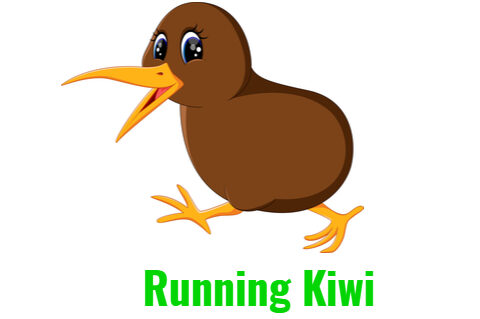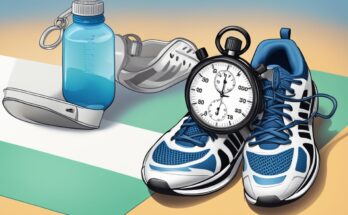When it comes to running, nutrition plays a crucial role in performance. One of the most common questions asked by runners is, “How soon before a run should I eat?” The answer to this question is not a one-size-fits-all approach as it depends on several factors, including the individual’s digestive system, the intensity and duration of the run, and the type of food consumed.
For runners, what they eat and when they eat it can significantly impact their performance. Eating too close to a run can cause discomfort and digestive issues, while eating too far in advance can leave them feeling sluggish and low on energy. It is essential to find the right balance to ensure the body has enough fuel to power through the run without feeling weighed down or depleted. In this article, we will explore the best practices for timing meals and snacks before a run to help runners optimize their performance and achieve their goals.
Why Eating Before a Run is Important
When it comes to running, eating before a run is important to ensure that the body has enough energy to perform well. The body needs fuel to function, and running requires a lot of energy. Eating the right foods at the right time can help to optimize performance and prevent fatigue.
Carbohydrates are the body’s primary source of energy during exercise. Eating a meal that is high in carbohydrates before a run can help to ensure that the body has enough fuel to perform well. It is recommended to consume carbohydrates 30 minutes to 4 hours before a run, depending on the size of the meal.
Protein is also important for runners, as it helps to repair and rebuild muscles that are damaged during exercise. It is recommended to consume protein after a run, rather than before, as protein takes longer to digest and can cause discomfort during exercise.
Fat is another source of energy for the body, but it takes longer to digest than carbohydrates. It is recommended to consume foods that are low in fat before a run, as high-fat foods can cause discomfort and slow down digestion.
Glycogen is the stored form of carbohydrates in the body. Eating a meal that is high in carbohydrates before a run can help to increase glycogen stores in the body, which can improve performance and prevent fatigue.
Hydration is also important for runners, as dehydration can cause fatigue and decrease performance. It is recommended to drink water before a run to ensure that the body is properly hydrated.
Electrolytes are minerals that are essential for the body to function properly. They help to regulate fluid balance, nerve and muscle function, and blood pressure. When the body sweats during exercise, it loses electrolytes. Consuming foods and drinks that are high in electrolytes before a run can help to ensure that the body has enough of these minerals to function properly.
Blood sugar is also important for runners, as low blood sugar can cause fatigue and decrease performance. Eating a meal that is high in carbohydrates before a run can help to regulate blood sugar levels and prevent fatigue.
Overall, eating before a run is important to ensure that the body has enough energy to perform well. It is recommended to consume a meal that is high in carbohydrates, low in fat, and moderate in protein, 30 minutes to 4 hours before a run, depending on the size of the meal. It is also important to stay hydrated and consume foods and drinks that are high in electrolytes to ensure that the body is functioning properly.
What to Eat Before a Run
When it comes to fueling up for a run, what you eat can make a big difference in your performance. Here are some tips on what to eat before a run:
Carbohydrates and Protein
Carbohydrates are a great source of energy for runners, as they provide the body with glucose to use for fuel. Protein, on the other hand, helps to repair and build muscle tissue. A combination of carbohydrates and protein is ideal for a pre-run meal or snack.
Some good options include:
- Whole grain toast with peanut butter
- Greek yogurt with fruit
- Energy bar with a balance of carbs and protein
- A fruit smoothie with added protein powder
Fruits and Vegetables
Fruits and vegetables are a great source of vitamins, minerals, and fiber, which can help to keep you feeling full and satisfied during your run. Some good options include:
- Banana
- Apple
- Carrots
- Berries
- Leafy greens
Snacks
If you’re short on time or don’t want to eat a full meal before your run, a light snack can be a good option. Some good options include:
- Crackers with hummus or cheese
- Trail mix with nuts and dried fruit
- Energy gel or chews for a quick boost of carbs
Pre-Run Meals
If you have more time before your run, a larger meal can be a good option. Just be sure to give your body enough time to digest before you start running. Some good options include:
- Oatmeal with fruit and nuts
- Whole grain bagel with cream cheese
- Grilled chicken with rice and vegetables
Remember to pay attention to portion sizes and avoid high-fat or spicy foods, which can cause digestive issues during your run. And don’t forget to stay hydrated with water or a sports drink to maintain your electrolyte balance.
In the end, what you eat before a run is all about finding what works best for you and your body. Experiment with different foods and timing to find a nutrition plan that helps you perform your best.
How Soon Before a Run Should I Eat?
When it comes to running, proper nutrition is key for optimal performance. Knowing when to eat before a run can be just as important as what you eat. In this section, we’ll explore the ideal timing and portion size for pre-run meals.
Timing
The timing of your pre-run meal can greatly impact your performance and overall experience. Ideally, you should aim to eat a meal 2-3 hours before your run. This allows your body enough time to digest the food and convert it into energy. Eating too close to your run can lead to gastrointestinal distress, stomach cramps, and vomiting.
If you don’t have 2-3 hours before your run, don’t worry. You can still eat a small snack 30-60 minutes prior to your run. Stick to easily digestible foods like a low-fat granola bar or a piece of fruit. This will provide your body with the necessary energy without weighing you down.
Portion Size
The size of your pre-run meal is just as important as the timing. Eating too much can lead to stomach discomfort and sluggishness, while eating too little can leave you feeling weak and fatigued.
Aim for a balanced meal that includes carbohydrates, protein, and healthy fats. Carbohydrates are the body’s primary source of energy, while protein and healthy fats help to sustain that energy. A good rule of thumb is to consume 1-2 grams of carbohydrates per kilogram of body weight.
Here are a few examples of pre-run meals:
- Oatmeal with berries and almond butter
- Whole wheat toast with avocado and scrambled eggs
- Greek yogurt with granola and fruit
Remember to stay hydrated before your run. Dehydration can lead to low blood sugar levels and fatigue. Drink water throughout the day and consider sipping on an electrolyte drink before your run.
In conclusion, the timing and portion size of your pre-run meal can greatly impact your performance and overall experience. Stick to easily digestible foods and aim for a balanced meal that includes carbohydrates, protein, and healthy fats. Stay hydrated and listen to your body to determine what works best for you.
Conclusion
In conclusion, the timing of eating before a run is a personal preference that varies depending on individual factors such as digestion time, exercise intensity, and training goals. It is recommended to eat a small snack or meal 30 minutes to 3 hours before a run to provide energy and prevent hunger during exercise.
It is also important to stay hydrated before, during, and after a run to maintain optimal performance and aid in recovery. Drinking water or a sports drink can help replenish fluids lost through sweat.
For those looking to boost their glycogen stores before a long run, consuming carbohydrates such as fruit, oatmeal, or toast can be beneficial. Nut butter can also provide a source of healthy fats and protein for sustained energy.
While some may think skipping a pre-run meal can aid in weight loss, it is important to fuel the body properly to prevent fatigue and injury during exercise. Eating a balanced meal or snack can actually aid in weight loss by preventing overeating later in the day.
Ultimately, it is important to listen to your body and experiment with different timing and food choices to find what works best for you. By fueling properly before a run, individuals can optimize their performance and improve their overall running experience.
Is it good to eat before a run?
Small bowl of oatmeal: While oatmeal is usually a good amount of fiber, it can be a good solution for runners who can’t eat close to the race, but need something small to sustain them. In general, most runners prefer to wait two to four hours after eating a full meal before heading to the gym or preparing for a hard run. You should always eat before a hard training session, as your body will need carbohydrate fuel. Should I go for the banana or oatmeal option, or do I go for it and go for a run? Some runners prefer real food for those long distance runs.
Remember that what you can and can’t tolerate on a run, how much you eat before you run, and how early you should eat depends largely on your individual needs. Below, we’ll show you exactly what you should eat before you run any distance and we’ll also show you what you shouldn’t eat before you run.




